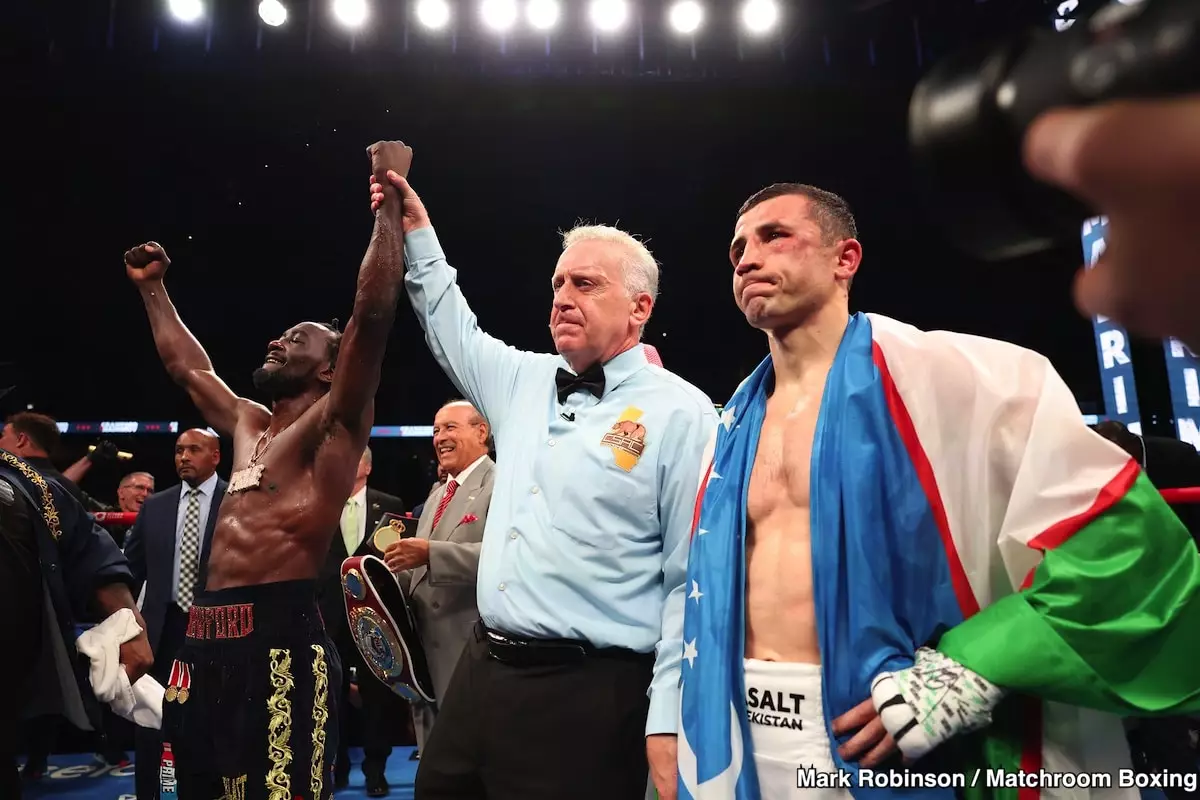Terence Crawford, known for his remarkable skills in the boxing ring, recently took to social media to express his long-standing frustration with the doubt cast upon his career. For many years, critics and fans alike have scrutinized Crawford’s choices regarding his opponents and the frequency of his fights. As he attempts to solidify his legacy in the sport, the same questions continue to loom over him—not just about his ability but also about his willingness to engage in challenging matchups.
Crawford’s career, spanning 17 years, has largely been marked by decisive victories and a perfect record of 41 wins with 31 knockouts. However, the narrative surrounding his resume often highlights a persistent reluctance to step into the ring with formidable opponents. Many boxing enthusiasts argue that to truly earn respect and admiration, a fighter must willingly engage in 50-50 fights—battles where both competitors are seen as equals in terms of skill and readiness. Unfortunately, Crawford’s pattern reveals a tendency to select fights where he is decisively favored, leading to perceptions of him seeking the path of least resistance.
In the world of boxing, where every match can significantly impact a fighter’s legacy, critics feel that Crawford’s inactivity—competing only once a year—and choice of opponents have diminished excitement surrounding his bouts. Rather than generating anticipation, fans often react with indifference, questioning the quality of the competition he faces and dubbing it as lackluster. The notion that Crawford is ‘fighting tomato cans’ further proliferates among skeptics, highlighting a perceived disconnect between his capabilities and his choices.
Many boxing fans and analysts contend that Crawford still lacks a career-defining fight—a marquee matchup that would elevate him in the eyes of critics and fans alike. Instead of seeking out elite competition or historic encounters, Crawford seems to gravitate toward safer options. He has been linked to a lucrative bout against Canelo Alvarez, widely regarded as one of boxing’s biggest draws. However, this aspiration raises further doubts: does Crawford believe he can genuinely compete at that level, or is he merely attempting to capitalize on Canelo’s status without first proving himself against others?
For a fighter of Crawford’s stature and skill, his reluctance to challenge himself is seen as a weakness. Should he make the conscious decision to confront the likes of David Benavidez or David Morrell—other champions within the super middleweight division—it could alter perceptions significantly. However, his hesitance to engage with these tough opponents may point to deeper insecurities about his abilities and preparedness.
Crawford’s recent performance, where he faced WBA junior middleweight champion Israil Madrimov, should have been an opportunity to establish credibility within the 154-pound weight class. However, the narrow nature of his victory, a unanimous decision that left fans questioning his supremacy, intensified scrutiny over his future ambitions. Notably, Crawford has not sought further competition against other champions within the division since that fight, raising eyebrows about his commitment to become universally recognized.
With younger, faster, and more powerful challengers awaiting him—such as IBF champion Bakhram Murtazaliev and WBC/WBO champion Sebastian Fundora—Crawford’s camp must recognize the urgency of taking these fights. The weight of doubt surrounding Crawford’s readiness to ascend into elite territory grows heavier as he chooses silence over action. The fact that many perceive him as avoiding potential pitfalls only compounds the skepticism surrounding his legacy.
As Terence Crawford navigates through the latter stages of his career, it is imperative for him to acknowledge the criticism thrust upon him by boxing enthusiasts. The doubt reflected in public opinion stems not from a lack of talent but more from a perceived absence of ambition and the unwillingness to take calculated risks. For Crawford to silence the critics and rewrite the story of his career, he should aspire to confront top-tier opponents regularly and seek meaningful fights that will enrich his legacy. Engaging in significant bouts and demonstrating a desire to challenge himself will go a long way in transforming the narrative around him from one of doubt to one of respect and admiration.

